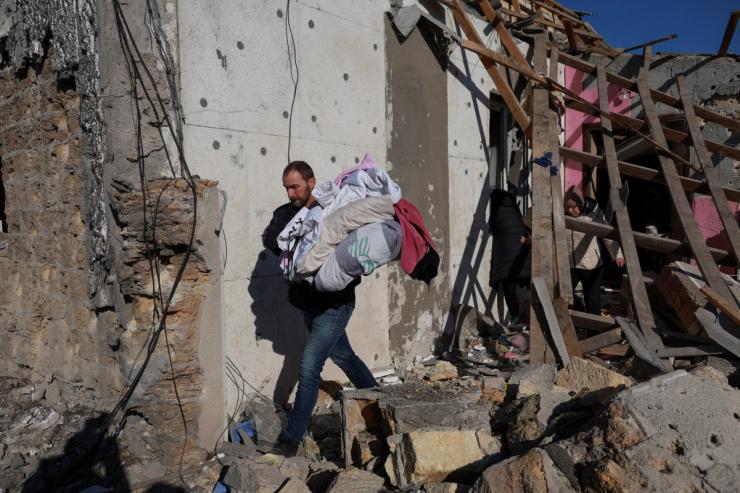The News
US President Joe Biden agreed to let Kyiv use long-range US weapons to strike inside Russia on Sunday, The New York Times reported, marking a major shift in America’s position on the war.
The move came weeks after Russia brought in North Korean troops to fight in the conflict. Washington’s decision is designed to discourage Pyongyang from providing further support, the Times wrote, citing officials.
SIGNALS
The shift is not expected to significantly impact the course of the war
Biden’s decision is not expected to fundamentally alter the course of the war, The New York Times noted. Russian President Vladimir Putin has previously warned that giving Kyiv permission to use long-range missiles would put the US and NATO directly at war with Russia. On Monday a Russian foreign ministry representative reiterated Putin’s comments, saying he had “spoken out on this matter,” while one member of the Russian Parliament wrote on Sunday that the escalation “could end with the Ukrainian statehood in complete ruins by morning,” The Guardian reported. Yet some US officials believe those fears are overblown, The Washington Post wrote.
Zelenskyy shows confidence as peace negotiations loom
The trajectory of the war is in focus following the reelection of Donald Trump, who has pledged to end the conflict immediately. Although Trump has refused to say if he would fully support Ukraine, and has expressed admiration for Putin, his “push for peace negotiations… is finding growing acceptance in Europe,” The Wall Street Journal reported. Zelenskyy himself has said that Kyiv has to end the war next year, acknowledging that it “will end sooner” with Trump as president. Zelenskyy has also reportedly offered the US and other allies access to Ukraine’s natural resources and to replace US troops stationed in Europe with Ukrainian ones once the war ends — signaling an “astute” understanding about how he might make a deal with Trump, an international affairs expert wrote.
Russia’s economy may not be able to hold on much longer
Despite sanctions and the shift to a wartime economy, Russia’s GDP has grown more than 3% over the past two years, partly thanks to sanction evasion that has allowed it to continue exporting resources like gas and oil, Foreign Policy noted. But now, the economy may be hitting its limits, the outlet added: “No matter how many workers it tries to shift to the defense industry, the Kremlin cannot expand production fast enough” to replace the weapons it loses in battle. The limitations are becoming apparent in other sectors, too: The country has had to postpone three major science infrastructure projects, Science reported, as sanctions made it difficult to obtain specialized equipment.


